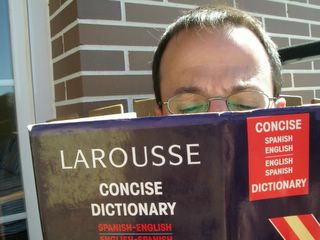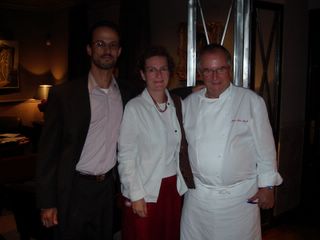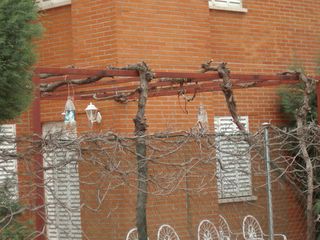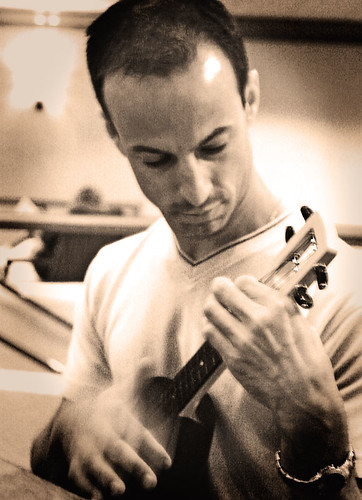TONGUE TIED.
It has happened again. I’ve just had a five-minute conversation in Spanish, without knowing what the hell we talked about.
This time it was with Sonia—the woman who owns the beauty salon in downtown Cabanillas del Campo. She snagged me as I passed her storefront, en route to Bar Gema for a café con leche. This much I know—she wanted me to relay a message to my wife regarding a scheduled massage. But that’s all I know.
Our conversation went—more or less— as follows:
Sonia: Tikkity takkity tikkity takkity your wife’s massage tikkity takkity tik.
Sal: How pretty they are the large red bird that she flies across the pretty blue sky that is here in this day of very sunny and hot temperature in our town today.
Sonia: Tikkity takkity tikkity takkity so please tell her what I said tikkity takkity tik.
Sal: It is him, how do I say it, that the pretty green telephone takes for herself a very big bowl of potatoes.
Sonia: Great! Thanks, Sal! See you later!
Anyway…the point of this tale is to illustrate that, after five years of total immersion, my Spanish-language skills remain almost as bad as those of President Bush.
I used to joke about this. When people would ask how my Spanish was progressing, I’d say, “Right on schedule! I’ve lived here for five years, and speak Spanish like a five year-old.”
But alas, the joke is on me. And humiliation has come from a most unexpected source: my two year old daughter, Inés.
For the past month, Inés has been giving ME vocabulary lessons. I knew this would eventually happen—but not so soon! The first hint of my impending doom came during a recent trip to Cantabria. We were hiking along a muddy trail, when the following conversation ensued:
Inés: Papá! I want to play in the charco.But the humiliation hasn’t ended with vocabulary. Inés’s mastery of Spanish grammar—including verb tenses and reflexive pronouns—surpassed mine around the time that she graduated from diapers to underpants.
Sal [whispering to wife]: What’s a “charco?”
Wife: It’s a puddle. You might also be interested to know that “hola” means hello and “adiós” means good-bye.
Such is my dilemma. But what is the solution? My wife and I have slightly different opinions on how to address my linguistic shortcomings.
Hers is that I should enroll in Conversational Spanish lessons at a nearby language school, and also participate in our local library’s Spanish-language reading group.
Mine is that I should give up.
And Inés’s? Well…she told me her opinion last night during dinner. But to be honest, most of it went over my head.











